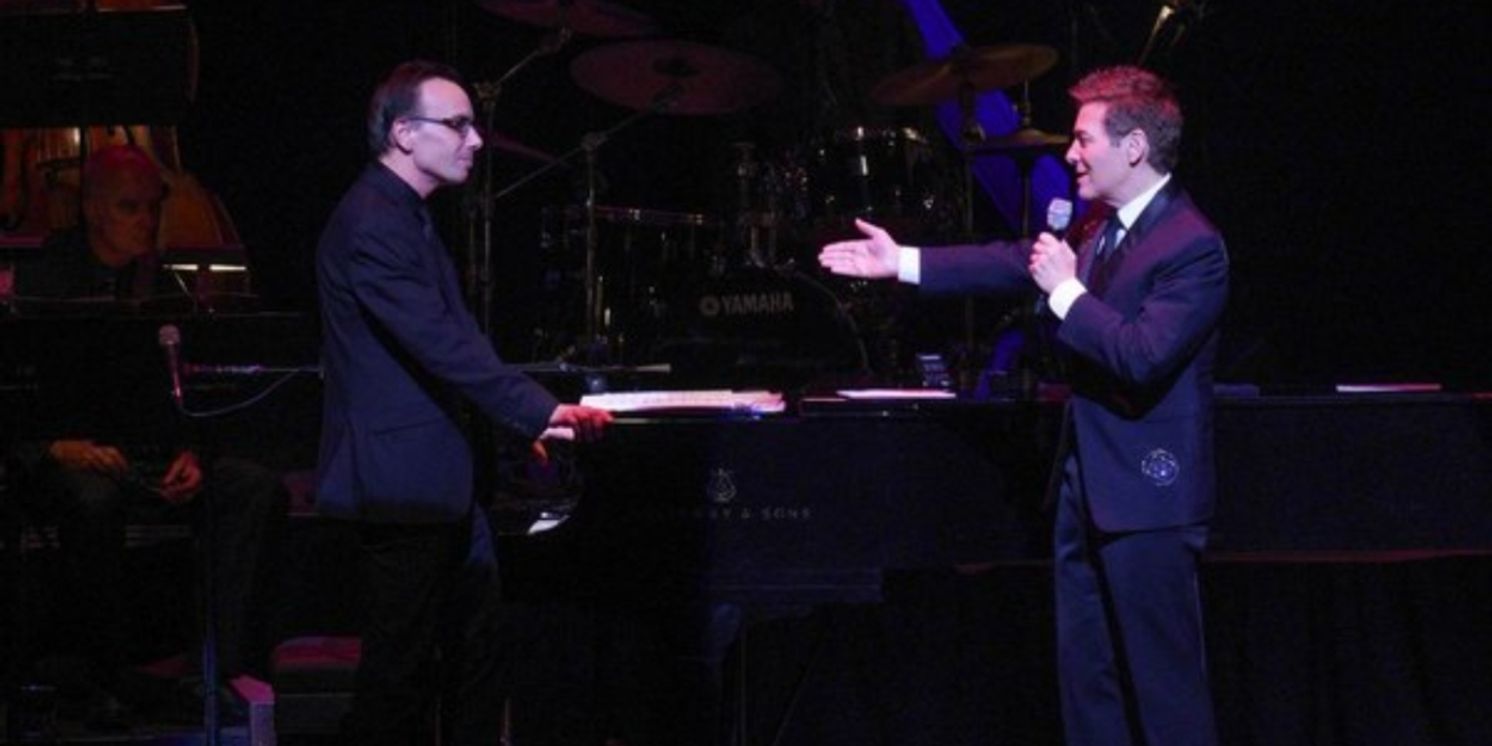Review: Lucky Are Those Who Caught THE SONGS THAT GOT AWAY at Carnegie Hall
Michael Feinstein champions some interesting selections and somewhat under-the- radar gems

Most of the content in November 6th’s edition of the series called Standard Time with Michael Feinstein wasn’t the standard sampling of the most famous standards in The Great American Songbook by its major writers. Presiding preservationist Feinstein, who knows those classics well, and sings and plays them well, has drawn from that well many times. But, he also is known to champion the greater of the lesser-known fare by the same titans of tunesmiths. The concert’s title, The Songs That Got Away, let us know we’d hear what we don’t usually hear in cabarets and concerts. That comes as good news for those oh-so-familiar with live shows and recordings full of the oh-so-familiar “usual suspects” — the kind of person who appreciates the answer (spoken with a weary sigh) to this old on-topic riddle:
Question: “How many cabaret singers does it take to sing ‘My Funny Valentine’?”
Answer: “Apparently, all of them.”
As sure as valentine cards will be sent in February, and it’s sure to be in the cards for Rodgers & Hart’s “My Funny Valentine” to appear in shows in three months’ time, this wasn’t the night for that or other riches from Richard Rodgers, like the beloved score of Oklahoma!, or for coming up with “Everything’s Coming Up Roses” or a standard embrace of “Embraceable You.” Instead we got their under-appreciated overshadowed relatively little-known relatives at Zankel Hall, inside the Carnegie Hall building. A warmly sung, wInning example of that was “Boys and Girls Like You and Me,” a romantic ballad cut from the aforementioned Oklahoma! Theatre audiences finally heard this 1943 delight years later — when it was placed in stage versions of Rodgers & Hammerstein’s State Fair and Cinderella, properties written for film and TV, respectively. Before that, it had been planned/recorded, as an interpolated entry to find its way into two films ……and was cut from both(!): the powers that be decided to take it out of Take Me Out to the Ball Game and it was an outtake from Meet Me in St. Louis. (The concert ended with a rousing rendition of a number that DID get into that film, one of the actual standards in the set, “The Trolley Song.”)
And while we did get a snippet of Gypsy’s “Everything’s Coming Up Roses,” it was as an illustration of how the same Jule Styne melody had been planned for use, in a breezier manner, for the score of High Button Shoes, from which it was tossed out. As demonstrated by Feinstein, a fine Styne melody is worth recycling. Speaking of great songwriters — and he did, lovingly, noting that some were friends — the Gershwin brothers have a special place in the entertainer’s heart. That’s partly because he worked closely with lyricist Ira back in the day. One of the siblings’ loveliest dismissed-discards-becoming-discoveries is “Ask Me Again,” trimmed from Girl Crazy, which might seem crazy because it has all the elements of a surefire hit and standard. However, our host suggested, it was probably too similar to the musical’s love song, the aforementioned “Embraceable You.” His tender treatment made the sigh-worthy sincerity of “Ask Me Again” a major highlight. A separate Gershwin showcase had Michael Feinstein singing one lyric while playing the piano for himself, using his own impressive special arrangement that wove in little bits and pieces of many other melodies by the composer.
He alternated self-accompaniment with performances standing at the mic with the keyboard manned by the sensational Tedd Firth, and his smart, artful mid-song instrumental breaks brought inventive, prodigious jazz flavorings to some selections. The two other versatile, vibrant veteran musicians, also tops in the field, were also frequent partners: bassist David Finck and drummer Mack McLean.
The feathery Feinstein sound on ballads contrasted with some uptempo robustness, leading to all-stops-out belting of big, sustained ending notes. Some cutely casual quips and amusing anecdotes prevented the proceedings from being too serious a history for the casual music-lover. The entertaining exploration/excavation also included instructive side-by-side comparisons of numbers pitched as totally different options as title songs for the same movie (The Way We Were and San Francisco) and small samples of two attempts by Johnny Mercer to create lyrics for melodies that were ultimately married to lyrics by others, resulting in the Academy Award-nominated/eventual classics “The Man That Got Away” and “The Shadow of Your Smile” (the latter won).
Quite a few songs in The Songs That Got Away have previously found their way onto the radar of Feinstein fans and other connoisseurs of cabaret. (For example, one of several pieces in the set he’s recorded, “Ask Me Again,” had also been on albums by Nancy LaMott, Rosemary Clooney, and others.) And there was one selection each from the following short-lived Broadway musicals: Carmelina, Skyscraper, Pousse-Cafe, and Beggar’s Holiday. So, while your mileage on recognition and recollection may vary, depending on what musical roads you’ve traversed, the team of the Feinstein, Firth, Finck & McLean (does that sound like a law firm?) will be terrific traveling companions whether you’re on new-to-you paths or Memory Lane. Michael Feinstein will be journeying to various locations with his tribute to the late Tony Bennett and his Christmas show; he’ll come full circle back to Zankel Hall on February 26 for a concert with a full orchestra, full of songs all about dancing, likely to attract a full house.
Follow and learn more about Michael Feinstein on his website: www.michaelfeinstein.com
Find more upcoming shows at Carengie Hall at www.carnegiehall.org
Header photo of Michael Feinstein (right) and Tedd Firth by Stephen Sorokoff
Reader Reviews
Videos

